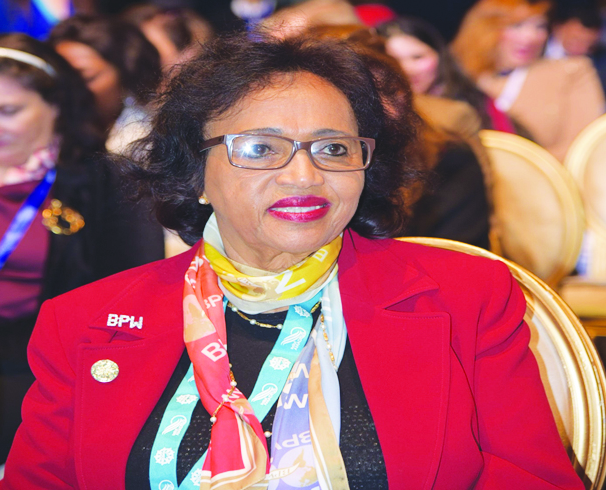
Hadia Mohamed was born and raised in Dire Dawa city. She is one of the founders and member of Enat Bank. She was also country representative of Ethiopian Seed Growers Association and board member of Public Consultation Forum of Ethiopian on Peace development and Democracy.
She has also served as Bilingual Secretary for Economic Commission for Africa, Addis Ababa and as Conference Officer at United Nation Environment Program in Nairobi. She has owned and managed over six private companies of her own. Currently, she is the chairperson of Ethiopian Women Exporters Association.
Apart from the national working language, Hadia speaks Oromifa, French, English and Arabic languages fluently. She also speaks Swahili and Somali languages fairly.
Best Entrepreneur award from Addis Ababa and African Chamber of Commerce, appreciation certificate from Ethio-America Trade and Investment Council and International Federation of Business and Professional Women, Egyptian Business Women Association and African Alliance for Women Empowerment are amongst the honors she has received.
The Ethiopian Herald had a short stay with Hadia to talk about her journey as well as the responsibility she has in the Association, The Ethiopian Women Exporters Association. Enjoy your reading.
Herald: When was the association established and how many members it has?
Hadia: The Ethiopian Women Exporters Association was established in 2000G.C. Currently, it has around 92 members, of which 65 of them are engaged in exporting items that are categorized in over ten different sectors such as agriculture, leather, coffee, flowers, vegetables, jewelry, among others.
Herald: what are the major activities of the association and how many of the members are engaged in the export market?
Hadia: Since its establishment, our association has been working focusing on areas that could step up the knowledge and skills of the members that are crucial to grow business and export trade. In this regard, top priority was given to capacity building trainings, market linkages, export centered information sharing, international trade fairs participation and other business oriented activities. Consultation and business advises are also part of the activities that has been done in the association. Herald: What are the areas of the export items?
Hadia: Out of the ten sectors that the members are involved, the items that are presented to the global market are coffee, leather products, textile, Enjera and jewelry among others.
Herald: Who are your stakeholders or the institution that you are working with?
Hadia: We have been performing networking with various national and international organizations. Before the 2010 law came to practice, we have been closely working with European Union, USAID, GIZ, Initiative Africa and others.
Nationally, Ministry of Trade and Industry and Ministry of Foreign Affairs, and Ministry of Women and Children are amongst our stakeholders.
Herald: Could you mention some of the challenges that your association encounters?
Hadia: To start with the most frequent challenges that most women face when engaged in the business sector, limitation to access resources such as financial and raw materials; and lack of communication skills as well as provision of working spaces challenge the association critically.
We believe that the money that the association spends on rent could be used to embrace more women who are in need of a little support to change their lives for the better. If working space had been provided to us, we could have extended our members and could do a lot for ourselves and the nation. We would like to take this opportunity to request the government or concerned institution to take our greatest challenge into account and do something about it.
Herald: What is your take on the role of the governments in supporting the association?
Hadia: Though there are some government offices that are closely working with us, we expect them to play significant role towards lessening the challenges of the association. The support we have gained is not at the desired rate.
Thus, we urge the government and all concerned bodies to identify and fill the gaps that move back most women, both those encompassed within the associations or in other sectors.
Herald: What have you accomplished so far through empowering the members?
Hadia: As part of the efforts that have been put to empower the members, the association has been doing various activities. Through the capacity building activities and technical advises that has been provided by the association, we believe that the members they have enabled to be competitive in the export market. Having more than half of the members engage in the export market with various items could be worth mentioning in this regard. On the one hand, the rest of the members have become near to involve in the export.
Herald: What message do you like to convey?
Hadia: The government should adopt some of the best experience of neighboring countries like East and West Africa regarding empowering and encouraging women. Many countries have set a platform to encourage women in many aspects. The government should at least provide incentive packages to encourage women to work and support each other. Moreover, it should take a role in facilitating linkage with associations operated in other countries.
Likewise, it should put a system that can attract more women in to the business and other sectors in practice. Collaborating with stakeholders, the government should also address the problems that many women have been facing outside of home chores.
The Ethiopian Herald May 17, 2020
BY BETELHEM BEDLU





